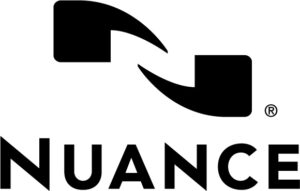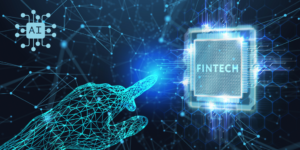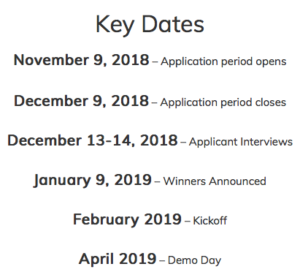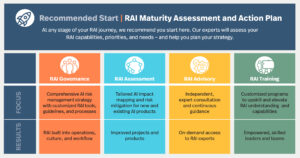
EdTech companies stand at a crossroads between legacy systems and the frontier of artificial intelligence, navigating a complex dual infrastructure challenge that could redefine the future of education technology.
As such, EdTech companies are pioneering the integration of generative AI technologies to enhance digital education delivery. These innovations span a vast range of applications—from adaptive learning platforms that customize educational content to the unique needs of each student, to AI-driven automation tools that enhance operations for faster delivery, liberating educators from repetitive tasks. AI technologies drive efficiency, boost productivity, and create less friction for students and teachers alike.
While the COVID-19 pandemic accelerated remote learning, leaders in the EdTech industry recognize generative AI as a newly disruptive force and are seizing the opportunity to leverage the technology as a catalyst for net positive change. Sal Khan, CEO of Khan Academy, proclaimed that “we’re at the cusp of using A.I. for probably the biggest positive transformation that education has ever seen.”
To better understand the extent to which leaders are implementing generative AI strategies and what barriers they face with implementation, Russell Reynolds Associates surveyed over 2,500 leaders globally in September of 2023. To contextualize these findings for EdTech leaders who are implementing AI solutions, we interviewed several notable executive leaders in the industry, each of whom are driving innovation within their organizational operations and through their product offerings.
We learned that to effectively harness AI’s transformative power, EdTech organizations and their leaders need a proactive AI talent strategy. To develop this:
- Start with leadership consensus to determine how and where AI solutions will be most impactful. AI is most effective when teams are fully aligned. This includes considerations around risks, available budgets, and responsible implementation and growth strategies.
- Determine who owns AI strategy in your organization’s new structure. There are various AI governance models and factors influencing how companies assign responsibility for their AI roadmap, from technical oversight to strategic integration.
- Align talent strategy with technology approach. Implementing AI requires EdTech leaders to develop a grounded AI strategy, carefully deciding between leveraging open-source models and investing in proprietary LLMs. This includes ensuring the availability of a robust data infrastructure and recruiting the right executive talent capable of steering the AI strategy.
- Implement agile and continuous learning cultures. Encourage a company-wide adoption of agile methodologies and continuous learning environments, positioning AI skills as essential for all roles, thereby enhancing the organization’s capacity to innovate and adapt in the fast-evolving EdTech sector.
- Adopt ethical AI approaches. Aim to enhance student experiences and outcomes without compromising equity or privacy. Ensure that the new AI technologies or AI-enabled workflows serve to reduce educational disparities, rather than widen them.
Start with leadership consensus to determine how and where AI solutions will be most impactful
AI implementation requires a behind-the-scenes overhaul that necessitates a robust, forward-thinking leadership strategy. As such, organizations need to determine where they want to focus AI adoption and need full senior leadership alignment and support to be successful.
AI solutions for EdTech companies can be classified into three primary domains: operational infrastructure, educational content enhancement, and student experience optimization.
- Within operations, generative AI can facilitate faster delivery of educational services, streamline administrative tasks, and improve operational efficiency within student information systems.
- In the educational content domain, adaptive learning technologies, innovative curriculum design, and precise skills assessment tools can support targeted career development and enrich educational content delivery.
- For student experience, chatbots and conversational AI can provide personalized support to students, while digital assistants embedded in learning platforms can offer real-time, AI-driven guidance.
Prioritizing AI requires not just technological adaptation, but a comprehensive reimagining of operations, go-to-market strategies, and, crucially, the talent that drives these innovations. For example, one executive shared that their company overhauled their entire platform to embed AI into the core of their strategy. This deliberate pivot illustrates EdTech leaders’ seriousness about AI, and that many see embracing the technology as necessary to maintaining their competitive advantage.
For the full article, view it on the Russell Reynolds website.
- SEO Powered Content & PR Distribution. Get Amplified Today.
- PlatoData.Network Vertical Generative Ai. Empower Yourself. Access Here.
- PlatoAiStream. Web3 Intelligence. Knowledge Amplified. Access Here.
- PlatoESG. Carbon, CleanTech, Energy, Environment, Solar, Waste Management. Access Here.
- PlatoHealth. Biotech and Clinical Trials Intelligence. Access Here.
- Source: https://www.mtlc.co/navigating-the-ai-frontier-organizational-implications-of-generative-ai-in-edtech/
- :has
- :is
- :not
- :where
- 2023
- 500
- a
- A.I
- About
- Academy
- accelerated
- adapt
- adaptation
- adaptive
- administrative
- Adoption
- ADvantage
- agile
- AI
- AI governance
- AI strategy
- aim
- aligned
- alignment
- alike
- All
- and
- approach
- approaches
- ARE
- around
- article
- artificial
- artificial intelligence
- AS
- assessment
- assistants
- associates
- At
- Automation
- availability
- available
- barriers
- BE
- behind the scenes
- Better
- between
- Biggest
- boost
- Budgets
- but
- CAN
- capable
- Capacity
- Career
- carefully
- Catalyst
- ceo
- challenge
- change
- chatbots
- classified
- Companies
- company
- competitive
- complex
- comprehensive
- compromising
- Consensus
- considerations
- content
- contextualize
- continuous
- conversational
- conversational AI
- Core
- could
- Council
- COVID-19
- COVID-19 pandemic
- create
- Crossroads
- crucially
- cultures
- Curriculum
- Cusp
- customize
- data
- data infrastructure
- Deciding
- delivery
- Design
- Determine
- develop
- Development
- digital
- disruptive
- domain
- domains
- drive
- drives
- driving
- dual
- each
- edtech
- Education
- educational
- educators
- Effective
- effectively
- efficiency
- embed
- embedded
- embracing
- encourage
- enhance
- enhancement
- enhancing
- enrich
- ensure
- ensuring
- Entire
- environments
- equity
- essential
- ethical
- EVER
- example
- executive
- experience
- Experiences
- extent
- Face
- facilitate
- factors
- faster
- findings
- Focus
- For
- Force
- forward-thinking
- friction
- from
- Frontier
- full
- fully
- future
- generative
- Generative AI
- Globally
- Go-To-Market
- governance
- grounded
- Growth
- guidance
- harness
- How
- HTTPS
- i
- illustrates
- impactful
- implementation
- implementing
- implications
- improve
- in
- includes
- industry
- influencing
- information
- Information Systems
- Infrastructure
- innovate
- Innovation
- innovations
- innovative
- integration
- Intelligence
- interviewed
- into
- investing
- IT
- jpg
- just
- leaders
- Leadership
- learned
- learning
- Legacy
- less
- Leverage
- leveraging
- Maintaining
- many
- Mass
- methodologies
- models
- most
- navigating
- necessary
- necessitates
- Need
- needs
- net
- New
- newly
- notable
- of
- offer
- Offerings
- on
- ONE
- open source
- operational
- Operations
- Opportunity
- optimization
- or
- organizational
- organizations
- outcomes
- over
- Overhaul
- Oversight
- owns
- pandemic
- Personalized
- Pioneering
- Pivot
- platform
- Platforms
- plato
- Plato Data Intelligence
- PlatoData
- positioning
- positive
- power
- precise
- primary
- privacy
- Proactive
- probably
- Product
- productivity
- proprietary
- provide
- range
- rather
- real-time
- recognize
- recruiting
- redefine
- reduce
- reimagining
- remote
- remote learning
- repetitive
- requires
- responsibility
- responsible
- right
- risks
- roadmap
- robust
- roles
- sector
- see
- seen
- seizing
- senior
- senior leadership
- September
- serve
- Services
- several
- shared
- skills
- Solutions
- span
- stand
- steering
- Strategic
- Strategic Integration
- strategies
- Strategy
- streamline
- structure
- Student
- Students
- successful
- such
- support
- surveyed
- Systems
- Talent
- targeted
- tasks
- teachers
- teams
- tech
- Technical
- technological
- Technologies
- Technology
- than
- that
- The
- The Future
- their
- Them
- There.
- thereby
- These
- they
- this
- three
- Through
- to
- tools
- Transformation
- transformative
- understand
- unique
- using
- various
- Vast
- View
- want
- we
- What
- when
- which
- while
- WHO
- widen
- will
- with
- within
- without
- workflows
- Your
- zephyrnet













